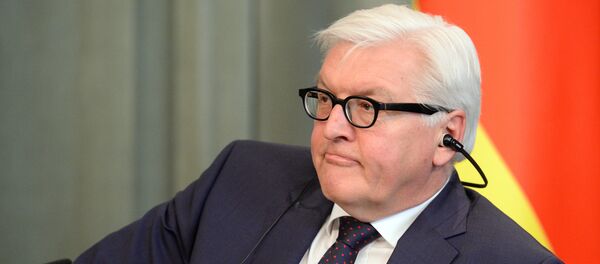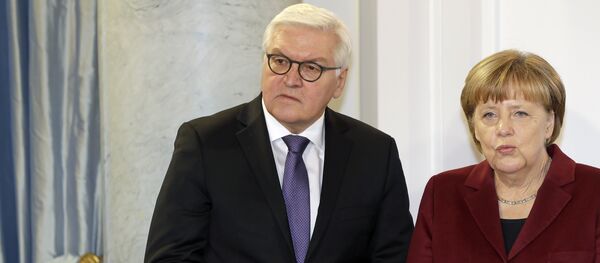MOSCOW (Sputnik) — The federal president is the head of state in Germany. He or she is elected without debate by the Federal Convention specially convened for this purpose, under the 1949 German Constitution.
Candidates must be German nationals, at least 40 years old and eligible to vote in elections to the federal parliament, the Bundestag. The term of office is five years. Reelection for a consecutive term is permitted only once.
The Federal Convention consists of members of the Bundestag and an equal number of members elected by the parliaments of the lands on the basis of proportional representation.
The Federal Assembly is convened no later than 30 days before the expiry of the incumbent president’s term, and in case of an early termination of his powers, no later than 30 days after the end of his term of office. It is convened by the president of the Bundestag.
The 1959 Presidential Election Act stipulates that any member of the Federal Convention can submit a nomination of their presidential candidate in writing to the president of the Bundestag. New nominations can be made for the second and third rounds of voting.
The Presidium of the Convention verifies that the nomination complies with the law. The Federal Convention takes decisions to reject nominations.
The voting is held using sealed official ballots. A ballot paper containing a name of a candidate who has not been officially approved for the elections will be considered invalid.
To be elected, a candidate must win the support of the majority of members of the Federal Convention. If no candidate receives the majority of votes, a second round vote is organized on the two candidates who have the most votes.
The president of the Bundestag informs the elected person about election results and allows them two days to give their agreement to take the post. If the elected candidate fails to submit the confirmation during this period, the candidacy is considered rejected.
The new federal president takes office when their predecessor’s term of office expires, but not before the president of the Bundestag receives the winner’s consent to take office.
On assuming office, the federal president takes an oath before the assembled members of the Bundestag and the Bundesrat, the chamber of the national parliament representing states.




